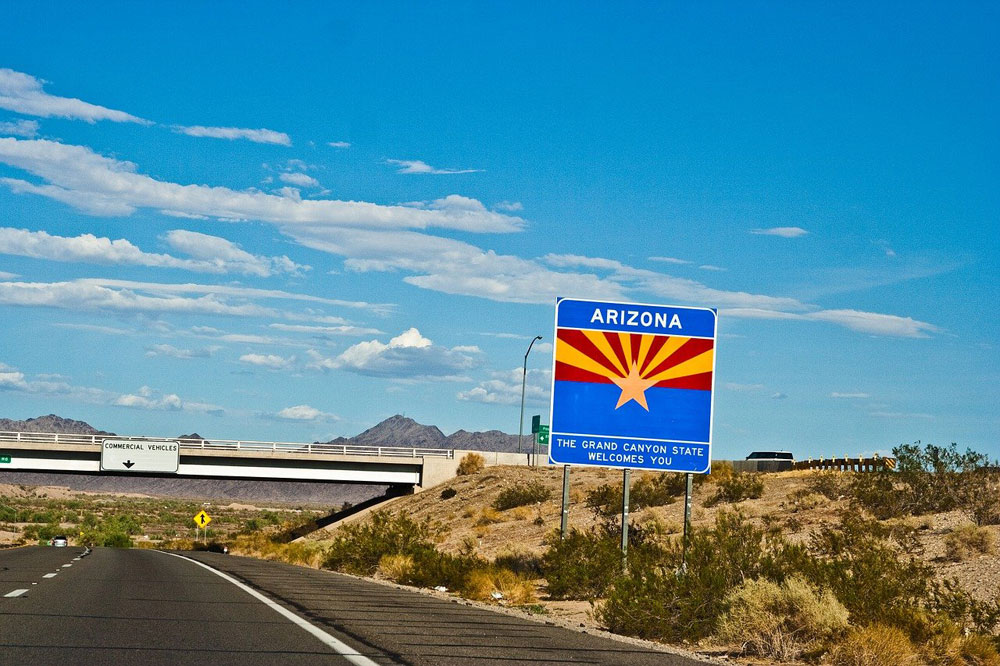
November 6, 2020; National Public Radio
Despite the unwillingness of the president to accept the reality of the vote and the waste of taxpayers’ money on lawsuits that undermine the democratic process in the US, analysts yesterday turned the dial in Arizona from “lean Biden” to “likely Biden,” who shows a lead of 12,813 votes over Trump. The Associated Press and Fox News called that race early last week, but other news organizations are waiting for a remaining 45,819 ballots to be counted, half of which are provisional. Trump would have to win 65 percent of the remaining votes to flip the race.
Meanwhile, Secretary of State Katie Hobbs rejected calls from Senator Karen Fann to launch an independent analysis of the election data as “patently unreasonable,” as there is “zero credible evidence of any impropriety or widespread irregularities.” A hearing for a final pending lawsuit from the Trump administration over 180 potential votes will be heard Thursday and likely lead nowhere.
If President-elect Biden is handed Arizona, it would be the first time the state has gone blue in a presidential election since 1996, but the truth is the state has been going blue for the past 10 years. This election voters chose a second Democrat to represent them in the US Senate and have a majority of Democratic Representatives in the US House. Locally, the state legislature is practically evenly split between the two parties, and a progressive wave of city councilors in Phoenix was able to pass legislation in February to create the first civilian review board over police conduct. That was a huge victory in a city where the police are known for rampant racial profiling and officer-involved shootings that parallel those in Los Angeles and New York.
This political shift in Arizona did not happen overnight and goes beyond media claims of a demographic change. In all fairness, attention and plaudits should be centered on a democracy movement and nonprofit organizations that have seen heartbreaking defeats and amazing victories. Under the umbrella of One Arizona, this coalition of more than 23 organizations across the state have been fighting for their rights and representation since anti-immigrant SB1070 was signed into law in 2010. It is a story of resilience that forced Arizona’s communities of color, in particular people of Mexican and Central American descent, to rise up against the horrors of family separations and deportations.
Sign up for our free newsletters
Subscribe to NPQ's newsletters to have our top stories delivered directly to your inbox.
By signing up, you agree to our privacy policy and terms of use, and to receive messages from NPQ and our partners.
Through a new website, Resilience in the Desert, you can hear advocates in Arizona tell their own stories of how they beat SB1070 and further legislation that placed their families at risk. It tells the story of young undocumented immigrants coming out of the shadows, organizing, and feeling empowered in shared solidarity. Their get-out-of-the-vote power rose from registering 12,000 new voters in 2010 to 500,000 new voters since, knocking on doors, gathering in asambleas, and making their power visible at every step of the way.
Some lessons learned included how the best strategy was a multiplicity of strategies and tactics, and the ability to respect each organization’s approach toward victory, while agreeing on key issues. Although One Arizona began as a coalition of Latinx organizers, it now includes people from all backgrounds including the Asian Pacific Community in Action, CAIR Arizona, the Inter Tribal Council of Arizona, and other progressive and faith organizations. Navajo Nation, for example, has become a strong voting force in Arizona.
Organizers also learned the hard way that supporting local elected officials did not necessarily bring the expected results:
Through time, it was clear that the candidates who were on our side when they got elected were not holding true to those values. Despite the work done to win them their seats, these candidates were not accountable to the community. It wasn’t enough that more Latinxs were elected, the candidates needed to be champions for our causes. This pushed pillars of the community to trade in their megaphones for microphones and run for elected office. Raquel Terán, leader from Mi Familia Vota, Planned Parenthood and countless other orgs, won her race for Arizona State Representative in 2018. Movement leaders like Carlos Garcia from Puente and Betty Guardado from CASE were elected into Phoenix City Council in 2019. Regina Romero broke through the glass ceiling and became the first Latina to be elected Tucson’s mayor.
These electoral victories go to show a changing composition of the Democratic Party that at the local level is being built from the ground up. Its hard-won racial and gender diversity will most likely lead to bold policies heading into the future.—Sofia Jarrin










